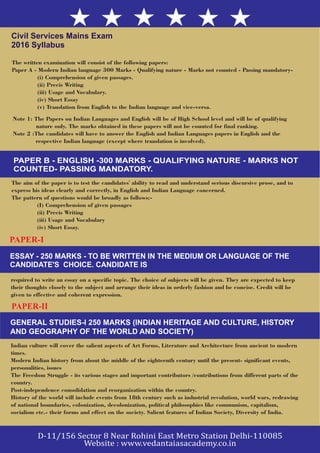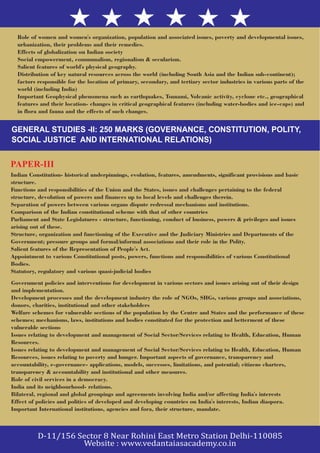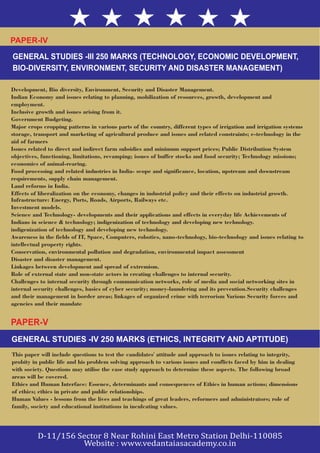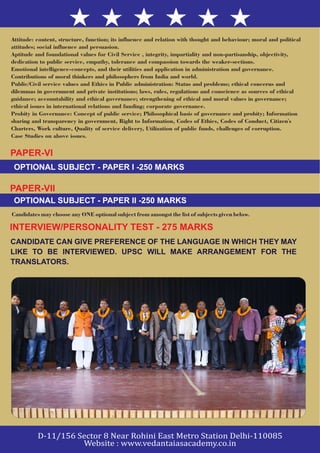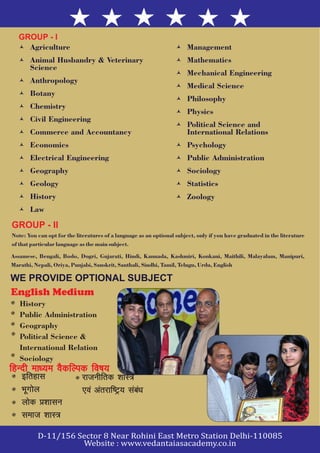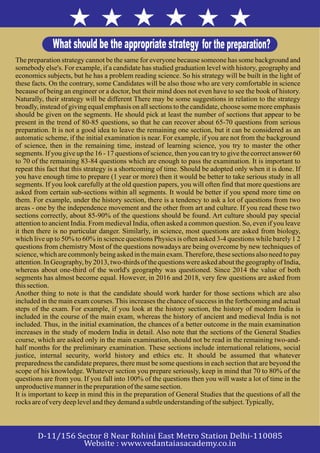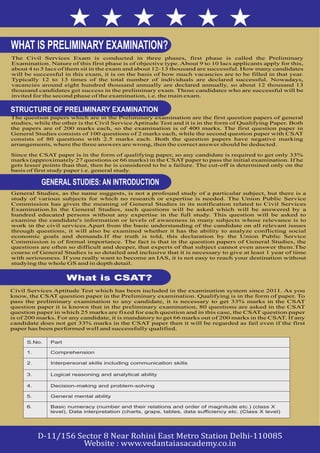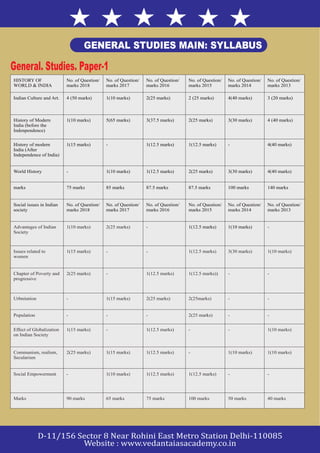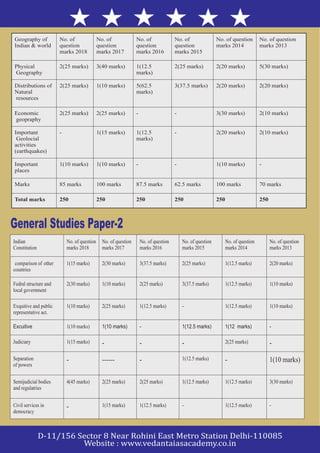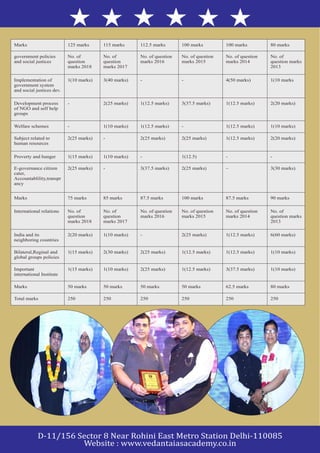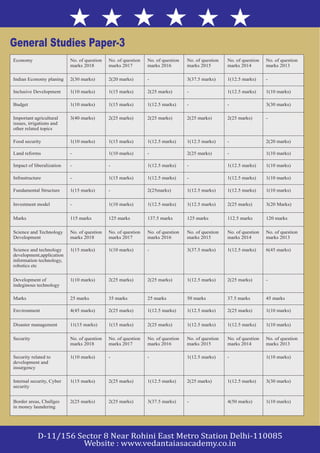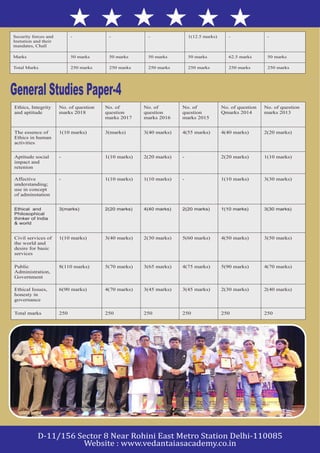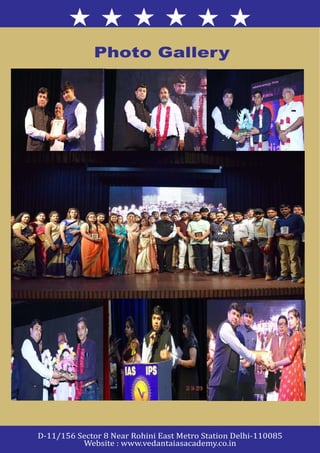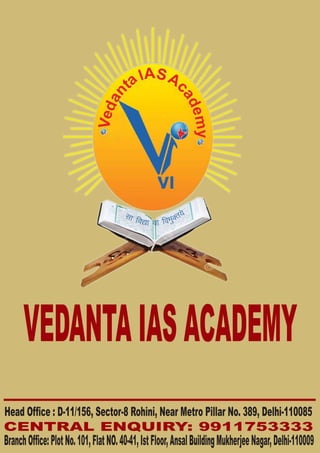The UPSC Civil Services Examination in India consists of three stages: a preliminary exam with objective-type papers, a mains exam with subjective papers, and a personality test. Eligibility for candidates includes being an Indian citizen or a person of Indian origin with specific educational qualifications and age limits. The exam is highly competitive, attracting around 900,000 to 1,000,000 applicants annually, with various services and positions available for successful candidates.
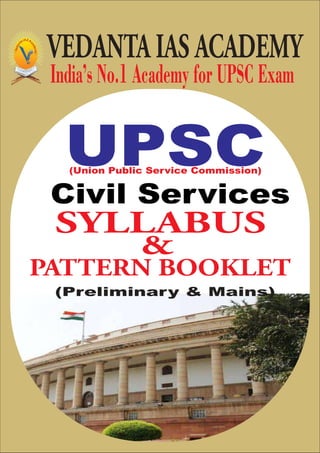
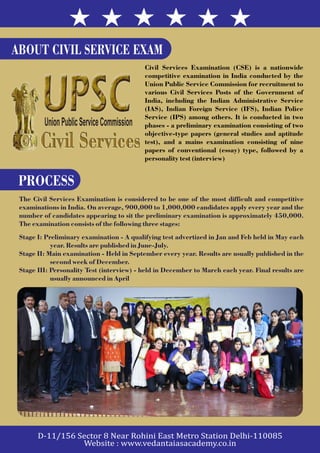
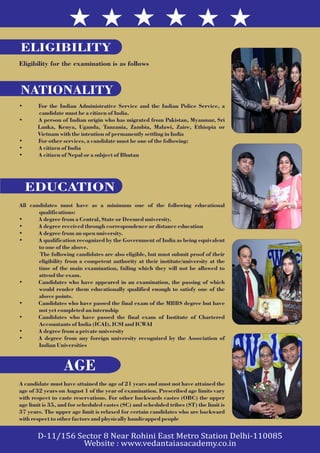
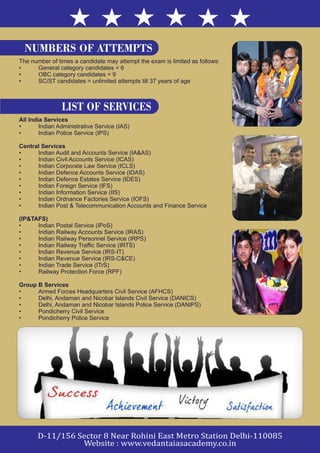
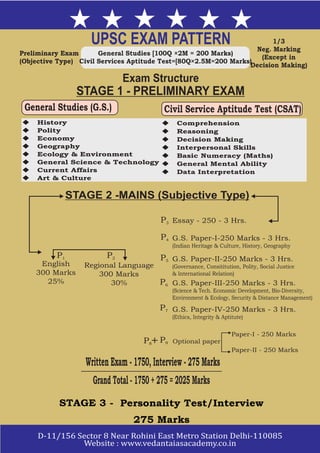
![Syllabus for UPSC - IAS Examination
IAS Examination, also called Indian Administrative Services Examination, which is one of
the toughest and prestigious examinations held in India, gives a chance to get most eminent
designation offered by Indian Government. Thus a detailed look throughout the syllabus is
very necessary, especially for those who are going to appear IAS for the first time.
UPSC - IAS examination is conducted in three phases:
Preliminary Examination of UPSC Consist of two papers, each of 200 marks and two
hours of duration and it is compulsory to appear in both.
It is an objective section, and every wrong attempt will cost you 1/3rd marks of the
attempted question.
Prelims is just a screening test, thus the marks obtained will not be entertained in your final
merit.
General Studies [100Q x 2m = 200 Marks]
Civil Services Aptitude Test = [80Q x 2.5M = 200 Marks]
Preliminary Exam
(Objective Type)
1/3
Neg. Marking
(Except in Decision Making)
History
Polity
Economy
Geography
Ecology & Environment
General Science & Technology
Current Affairs
Comprehension
Reasoning
Decision Making
Interpersonal Skills
Basic Numeracy (Maths)
General Mental Ability
Data Interpretation
SYLLABUS
EXAM STRUCTURE
STAGE 1 - PRELIMINARY EXAM
General Studies (G.S.) Civil Service Aptitude Test (CSAT)](https://image.slidesharecdn.com/vedantprospects-mi-191108062425/85/Vedanta-IAS-Academy-6-320.jpg)
